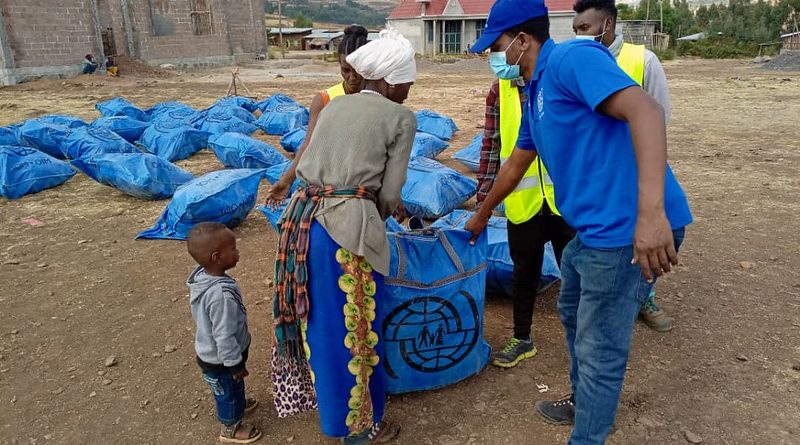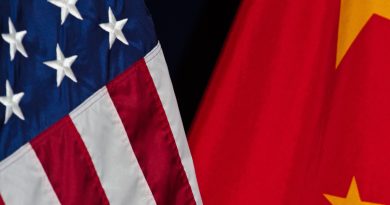Cold War Policy Tactics Doom Yet Another Developing Nation
Will Kanatzar
Staff Writer
“We will bury this enemy with our blood and bones” is hardly a statement one might anticipate hearing from a Nobel Peace Prize winner, but Abiy Ahmed’s tenure as Prime Minister of Ethiopia has been far from what anyone has anticipated. On October 31, Ahmed sounded the alarm of a near state collapse when he urged citizens to take up arms and brace for a battle over the capital of Africa’s second most populous country, reports The New York Times. Now, with almost every global power keen on remaining influential in Africa, many remain baffled as to why the world has remained largely indifferent towards Africa’s second most populous nation.
Abiy’s arrival in office brought a series of sweeping reforms, many of which were successful. One particular reform, however, proved too ambitious: switching Ethiopia’s government from a federal system with ethnically defined states to a country governed by coalitions in one single pan-Ethiopian political party, as notes MSN. Every ethnic political party joined Abiy’s new party, except the Tigrayan Liberation Front.
The Tigrayan People’s Liberation Front (TPLF) had formed and lead the ruling government coalition Abiy had reformed decades prior to his rule. As notes ABC News, after being sidelined in Abiy’s government reform efforts, the TPLF began claiming that Tigrayan autonomy and self-determination was being erased. Failure to generate any concessions or compromises on behalf of the Tigray, the TPLF forces launched a series of attacks on government forces and bases across Ethiopia’s northern region in November of 2020. Now almost a year later, the TPLF slowly encircle Ethiopia’s capital, reports The Guardian.
The War in the Tigray has featured a myriad of human rights abuses and war crimes. Ethiopian federal forces have annihilated Tigrayan civilian infrastructure, destroying hospitals, schools, and businesses. Worse, pro-Abiy forces have raped, murdered, and driven nearly 2.3 million civilians from their homes, with similar allegations being leveled against opposition forces as well. Furthermore, government forces have reneged on Abiy’s pledge to protect civil liberties, by arresting members of opposition groups and journalists in the lead up to the 2021 national elections, reports Human Rights Watch.
Almost all global hegemons have launched goals to guide African states to their economic potential. These goals seem to center around the fact that a continent as rich in natural resources as Africa does not and should not have to remain less developed than its European and Asian counterparts. However, in basing their goals around this fundamental truth, the global community has failed to acknowledge another equally important truth: the international community will not achieve a change in African development without departing from Cold War foreign policy tactics.
The U.S. has utilized Ethiopia as a base for counterterror operations in neighboring Somalia for much of the last 20 years. While Ethiopia has proved a valuable partner in the region, the U.S. failed to guide Ethiopia out of the early signs of conflict. Additionally, the U.S. did little to discourage the war crimes carried out by Ethiopian and allied forces, with the State Department only outlawing U.S. arms manufacturers from exporting to the region in September of 2021, as per State Department.
This repeats a broader theme seen in most of the U.S.’s Cold War foreign relations. As documented by the University of Denver’s Human Rights and Human Welfare journal, when asked about U.S. ally and Nicaraguan dictator Anastasio Somoza’s human rights abuses, President Franklin Roosevelt previewed future foreign relations tactics saying, “He may be a son of a b—-. But he’s our son of a b—-.” Not only is prioritizing alliances over democratic values immoral, it’s also counterproductive to strategic goals. The TPFL used the massacres and human rights abuses in the Tigray as a rallying cry that saw thousands of young Tigrayans join the TPLF, as writes MSN.
Subbing in for the Soviet Union, China has only further complicated international aid efforts. China has sought to export arms to those blacklisted by the State Department in an effort to vie for influence in the region, as writes The National Interest. China’s message is quite clear: the U.S. might get squeamish in response to human rights abuses, but China will remain a steadfast partner to allies facing rebellion.
The Global Community has had no shortage of crises to contain, however the global community and the hegemons that lead it can no longer afford to ignore Ethiopia. To build regional and continental stability, the international community should place an emphasis on guaranteeing civil liberties and ethno-based power sharing. This in turn will help lessen the allure of ethno-political violence in Ethiopia and throughout Africa. Choosing instead to tear the continent apart in a Cold War redux and ignoring democratic values runs the risk matching a bloody past with a bloody future.


